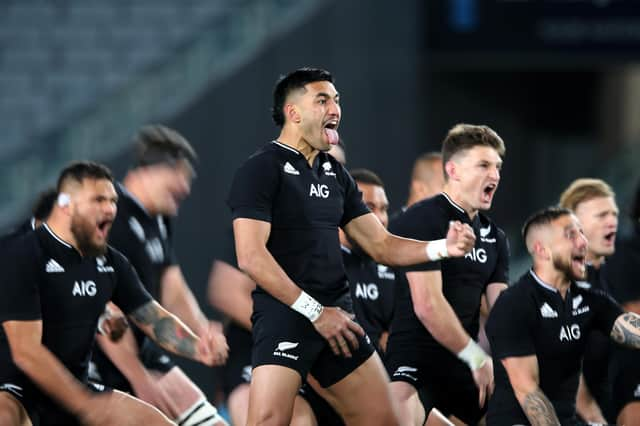Allan Massie: New Zealand can't hold this line forever as prospect of normal rugby season looms


This is because the New Zealand Government has imposed a snap lockdown after the first positive Covid case for six months was reported.
Here, as in the USA and on the continent of Europe, we have in effect concluded that, after a vigorous programme of vaccinations, we must live with Covid. In New Zealand, however, it is still possible to believe that the country can live in splendid isolation without it. How long, one wonders, can they hold this line? Cancelling what promised to be gripping Test matches against South Africa, world champions and fresh from winning the series against the Lions, is evidence of their government’s determination.
Advertisement
Hide AdAdvertisement
Hide AdThings are different here. It’s doubtful if another lockdown would be observed. No doubt there will still be some Covid-inspired disruption. Nevertheless, after the Euros and with football clubs flying all over Europe in qualification rounds for UEFA’s three flagship tournaments, it still seems likely that our northern rugby season may proceed with at worst only a few minor interruptions.
A piece by Stuart Barnes in which he called on Eddie Jones to leave England’s captain, Owen Farrell, out of the Autumn internationals has had me thinking about the captain’s role. It’s probably, in the eyes of coaches anyway, less important than it once was. Certainly it’s quite usual now to see the captain being replaced even when the outcome of a match remains uncertain. Moreover coaches are always talking about the importance of having several leaders in a team. Sometimes you might think they want so many leaders that there can be very few left to be led.
Yet the captain surely still has an important role even in the national side, if only because he can say “come on” while the coach can do no more than mutter “get on”. There have always been arguments about the best position from which to captain a side, but after more than half a century of watching rugby I’ve concluded that there is no such best position. Teams have been successfully captained at every number from 1 to 15. Character is what matters.
Coaches at Glasgow and Edinburgh have recently tended to name club co-captains. This makes sense, especially if one of the two is unlikely, or indeed ineligible, to be picked for Scotland. Alastair Kellock became Glasgow’s most successful captain when his own international days were almost over. Otherwise New Zealanders have been favoured, as bringing, supposedly, a harder edge to the game. Just now I would think there is a good case for having one of your co-captains an international in the summertime of his career – say, Ali Price at Glasgow, Jamie Ritchie or Hamish Watson at Edinburgh – the other a club stalwart, now in the autumn of his career, such as Rob Harley at Glasgow, Stuart McInally or Willem Nel at Edinburgh.
Looking ahead, it is easier to be optimistic about Scotland than about Glasgow and Edinburgh. Victories at Twickenham and the Stade de France made this year’s Six Nations remarkable. Indeed this was a double without precedent, and the achievement was only slightly marred by narrow losses at Murrayfield to both Wales and Ireland. In contrast both Glasgow and Edinburgh had disappointing results, admittedly in what was very difficult circumstances with Covid restrictions meaning that more players than usual were in Scotland squads. Now, however, the re-fashioning of what was the Guinness Pro14 to admit four South African provinces, means that the new competition is going to be even tougher than the old one, with qualification for the two European competitions even harder than it has been.
That said, the real problem for Edinburgh and Glasgow remains what it has been for some years now: how to match the Irish provinces? It’s not just that both Scotland clubs have regularly suffered heavy defeats at the hands of Leinster. This is sad but understandable. Leinster have been one of the three or four best clubs in Europe for several years now. But that Edinburgh and Glasgow have repeatedly lost to Munster, Ulster and Connacht is less excusable. There is some promising young talent. How quickly can it be developed? At the same time there has been an exodus of star players: Duhan van der Merwe and Rory Sutherland from Edinburgh, Adam Hastings and Huw Jones from Glasgow. The national side may not suffer, may even benefit, from such departures; it’s a different matter for the clubs.